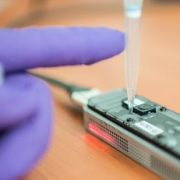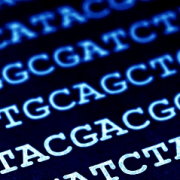The missing ‘genomic link’ between smoking and cancer
Scientists reveal a permanent ‘footprint’ left on genome from the number of cigarettes smoked in a lifetime
Tobacco smoke markedly increases the risk of developing many different types of cancer, most especially lung cancer, yet the detailed mechanisms by which smoking damages the genome and causes cancer are still not fully understood. Now, a recent study reveals a direct link between the number of cigarettes smoked in a lifetime and the number of variants in tumour DNA.
Variant nature and nurture
Cancer arises from the accumulation of crucial genetic variants that together act to derail the normal controls over cellular activity and replication. All cellular DNA acquires changes over time. Some genetic variants we are born with can increase the probability of these changes, and hence our risk of cancer. Exposure to some external or ‘environmental’ agents can do the same.
Researchers have now examined profiles or ‘signatures’ (patterns of changes in genomic DNA) from over 5,000 samples of types of tumour linked to smoking. They found a number of distinct signatures linked to cancer to a greater or lesser extent in different organs.
A record of genomic damage
Unsurprisingly, lung cancers – arising in cells directly exposed to tobacco smoke – had the heaviest load of variations, an average of a massive 150 new variations per lung cell per year of smoking a relatively moderate twenty cigarettes a day. These changes are the ‘missing link’ between smoking and lung cancer, and provide clear proof of exactly why smoking raises risk. The increased variant load was different in organs not directly exposed to the smoke, with averages of 97 variations per cell per year of smoking in the larynx; 39 in the pharynx; 23 in the mouth; 18 in the bladder, and just six in the liver.
There were also distinct variant patterns representing different mechanisms of DNA damage and increased cancer risk. One signature seen mostly in tumours in tissues directly exposed to tobacco smoke was linked to a mechanism of direct DNA damage, similar to that seen from exposing cells to tobacco smoke carcinogens in the laboratory. However, other signatures were associated with quite different mechanisms of variant, such as activation of cellular DNA editing.
More unexpectedly, relatively few epigenetic changes were found; these are changes to DNA structure other than the sequence of coding bases that act like ‘dimmer switches’ to control gene activity. Many social and environmental influences on health are thought to operate by inducing epigenetic changes, which in turn affect gene expression and cellular behaviour, but this did not appear to be a major mechanism in the effect of smoking on cells.
Applications for prevention and treatment
Director of the Wellcome Trust Sanger Institute and joint lead author of the research published in the journal Science, Professor Sir Mike Stratton, told the BBC: “The way tobacco smoking causes cancer is more complex than we thought…This study of smoking tells us that looking in the DNA of cancers can provide provocative new clues to how cancers develop and thus, potentially, how they can be prevented.”
Lung cancer is not only one of the most common forms of cancer in the UK, but also has generally poor outcomes; only around 5% of patients survive ten years after diagnosis. The new genomic findings are an important step towards properly understanding and ultimately preventing or more effectively treating lung cancer, as well as other cancers for which smoking increases risk.
–









